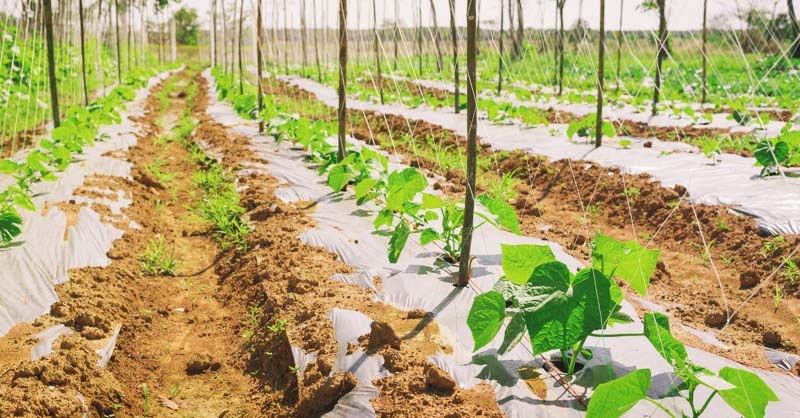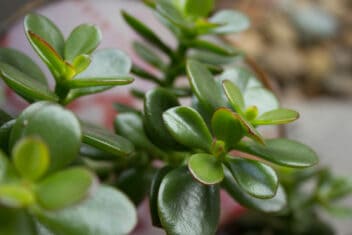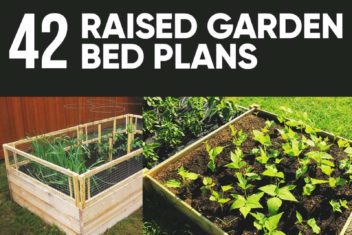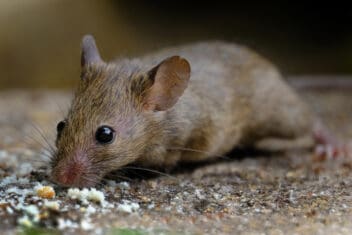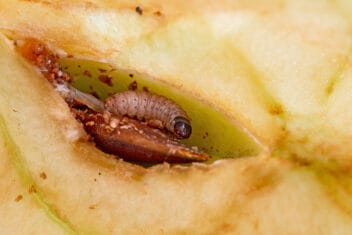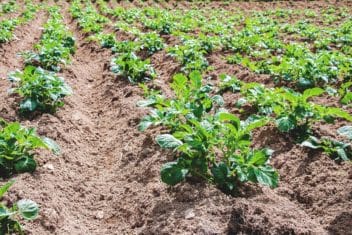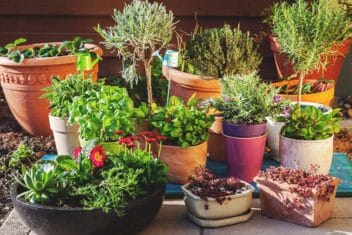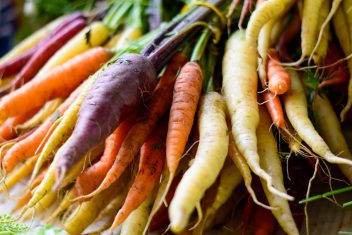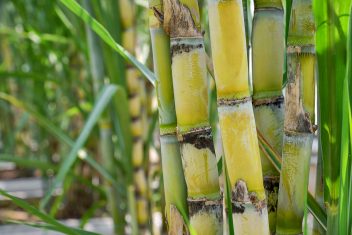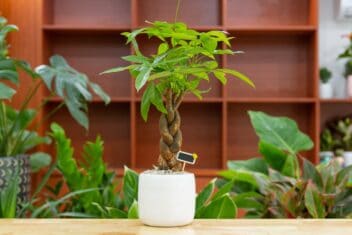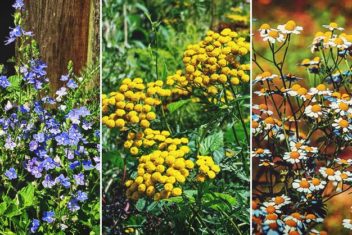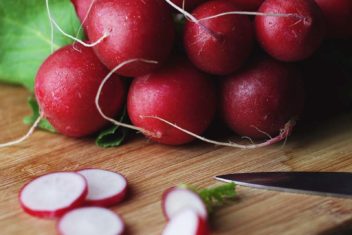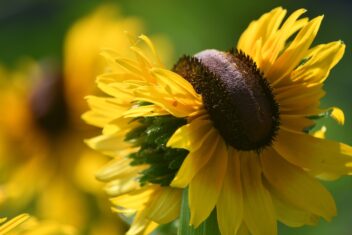The other day, some friends who are starting an organic vegetable garden told me they got their soil test results back. They said the only recommendation they got was to apply 10-10-10 fertilizer. They were planning to buy some at the store and apply it.
“You’re what?!” I responded, with that ear-splitting screech of shock and horror.
The idea that they were about to put conventional fertilizer on their organically amended soil was appalling! Didn’t they know they could undo all that hard work with one bag of cheap, overly strong fertilizer?
When I got over my initial horror and saw their expressions of confusion, I realized they didn’t know. They were new to gardening and merely didn’t know the do’s and don’ts of organic gardening yet.
That got me thinking that maybe other new gardeners who wanted to grow vegetables organically, might also be struggling to figure out what to do and not
So, this post is my attempt to help all of you good people who want to grow organically understand what organic means and what will and won’t promote success in an organic garden.

Organic Vegetable Garden Versus Conventional Garden
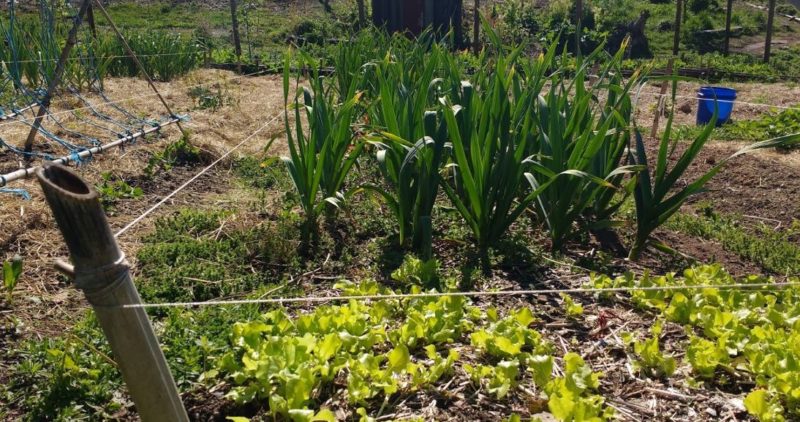
First, off, it’s important to understand that organic gardening is an entirely different way of gardening to conventional gardening. It’s not just about using products with the word ‘organic’ in them. If you genuinely want to grow an organic garden, it’s pretty much all or nothing.
That’s because,
On the surface, it may seem counter-intuitive to feed soil life rather than plants. But, when you focus on feeding the organisms in your soil, you get a whole host of other benefits that you don’t get when you primarily feed plants.
Benefits of Organic Gardening
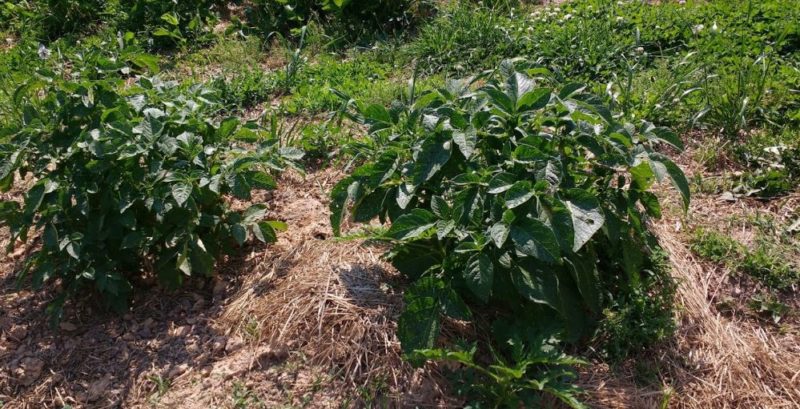
Reason 1: Biological Relationships
When you feed the soil, you support all sorts of beneficial biological life including bacteria, fungi, protozoa, and nematodes. Those life forms build mutually beneficial relationships with plants.
– Micro Heroes
In return for access to plant sugars obtained through photosynthesis, the life forms in soil provide plants almost all the nutrition they need to grow well. Plus, they also protect against pathogens, diseases, and pests.
New research indicates that those micro-life forms in the soil can even form a communication network between plants. Using that network, plants can get a warning of pest invasions from other plants that are under attack. That gives the early-warned plant time to increase their defenses and get ready to repel pests.
– Larger Helpers
Well-fed soil also hosts communities of beneficial insects like earthworms, arthropods, and more. They decompose organic matter through their digestive processes. That makes those nutrients available to the micro heroes mentioned above.
Those larger soil helpers also support bird communities by being a protein source for predatory birds. Those birds also eat your pests feeding off your plants. A healthy population of pest-eating birds, fed in small part by soil critters and a large part by garden pests, is what we organic gardeners call a huge benefit!
Basically, when you feed your soil and not just your plants, you create an entire ecosystem that works to help support the health of your plants. Those biological relationships make plants less susceptible to disease, more resilient in difficult growing conditions, and more nutritious for you when you eat them.
Reason 2: Environmental Benefits
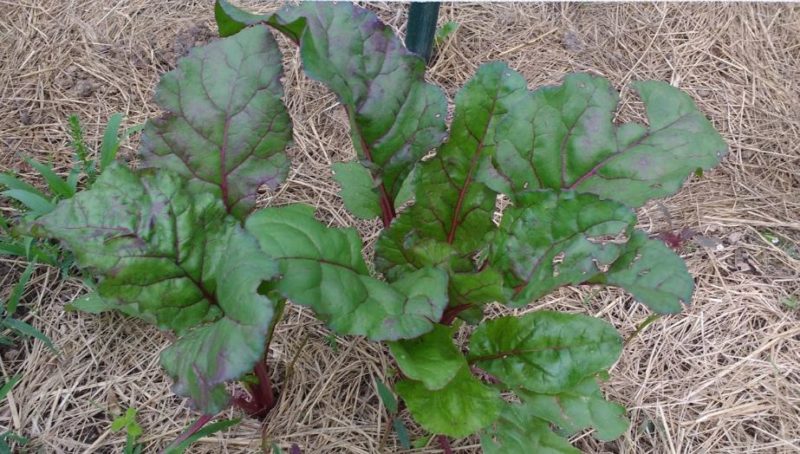
Beyond the benefits to your plants, there are also broader environmental benefits from growing organically. When you feed plants rather than feed the soil, plants don’t get the benefit of a whole ecosystem working towards their health. So, they tend to be more susceptible to pests and pathogens.
– Fungicide and Pesticide Use
As such, they require more applications of fungicides and pesticides to maintain plant health. Those tools work for a while. But within a short period, pests and pathogens adapt to be immune to those tools. Then we have to use stronger fungicides and pesticides that are potentially more toxic to us and the plants we are trying to grow.
In an organic garden, the reverse is true. When you feed your soil, consistently over several years, your pests and pathogens decline. So, you don’t need potentially toxic fungicides and pesticides at all.
– Weed Killers
Conventional garden soil is also more prone to weeds. The high and immediately available nutrient content of traditional fertilizers helps weeds proliferate. That necessitates the use of weed killers to control weed problems.
Similar to fungicides and pesticides, weeds become resistant to weed killers. Then, more toxic weed killers are needed to kill the new super-weeds.
In an organic garden, weeds are suppressed using mulches. Plus, other organic planting practices like no-till gardening reduces the conditions that support fast weed-growth.
I don’t want to get into all the complicated calculations of what constitutes harm for humans with concerning these products. Personally though, that trend of increasingly stronger chemicals scares me. In my organic vegetable garden, I don’t need to use any chemical products ever!
I have very few pests, pathogen, or disease problems. The occasional problems I do have can easily be managed with things I have on the homestead like whey (left over from cheese-making) or hand-picking and feeding pests to my chickens.
Reason 3: Homesteader Friendly
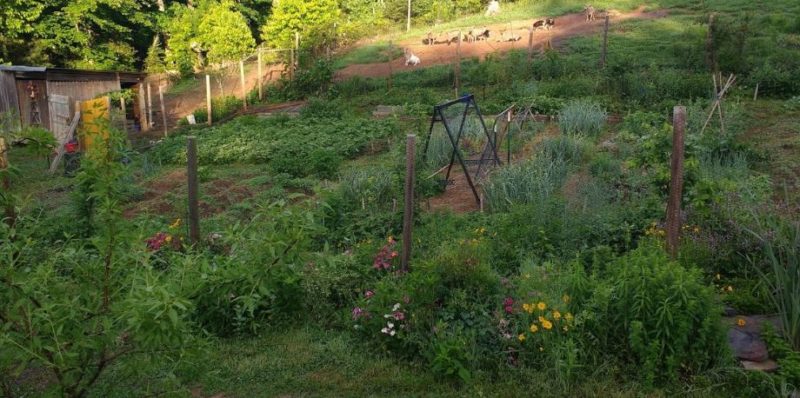
I love those first two reasons for organic gardening. They make me feel like a good environmental steward for doing it. However, the real reason I am an organic gardener is that my garden gets better every year.
It takes a few years to see the benefits of gardening organically. But when you do, it’s pretty incredible.
– Increased Water Holding Capacity
The soil is more permeable so rain filters deep inside. That means my organic vegetable garden requires less watering.
My organic vegetable garden also continues to grow much better in droughts and extreme rain than conventional gardens. That means I can rely on it for food even in the tough years.
Plus, I don’t have to do as much work watering or worrying about excessive rains as my conventional gardening friends do.
– Reduced Fertilizer Needs
In a new organic garden, using organic-material based fertilizers is usually necessary. But once you get enough organic matter in your garden, you won’t even need those most of the time.
Compost, worm castings, wood ash, and cover crops are my primary soil amendments. Since I can make or grow those myself, I am not dependent on outside inputs for my vegetable production.
– Better Quality
I’ve read those reports that say organic food is only a little bit more nutritious than conventionally grown vegetables. But, I assure you they are not testing the vegetables in my garden.
If they were, they’d know that food grown in soil loaded with organic matter is better tasting. It’s also way more nutritious than what you get at the grocery store.
I know this because my body tells me so. I have more energy and better general health eating my vegetables than anything I can buy at the store.
Not only is my organically grown food harvested from better soil; it’s not sprayed with anything potentially detrimental. I don’t even wash many of my vegetables. I eat them straight from the garden.
All-In Organic Gardening
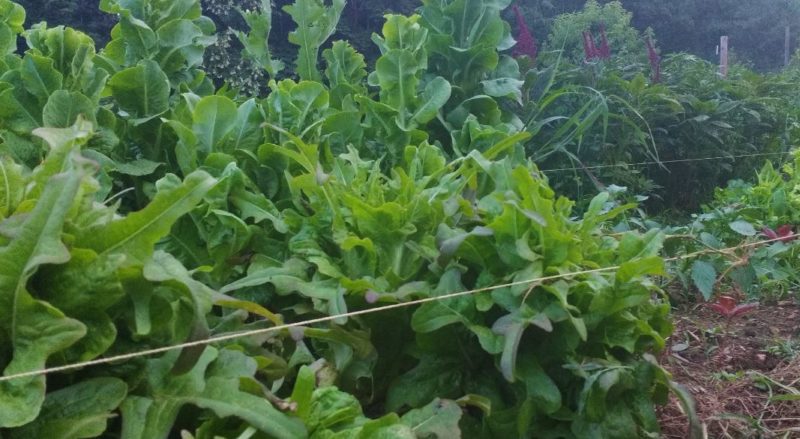
For best results, organic and conventional gardening practices can’t be mixed and matched. You are either an all-in organic gardener, or you are
Now, some people are conventional and use some organic practices. That’s good too. But it’s not the same as being an organic gardener.
Switching between organic and conventional gardening methods is kind of like switching between your body digesting food, and tube feeding your body liquid nutrients. In an emergency, it might be necessary. But afterward, it takes a lot of work and time for your body to get back to healthy digestion.
If you suddenly shift your focus and feed your plants with conventional methods and bypass the soil, the soil starves. Some of the biological life at work in your organic vegetable garden goes dormant. Then it will take you lots of time and work to wake those life forms back into condition for feeding your plants.
For conventional gardeners using some organic practices like adding compost to your garden beds, you’ll get some benefit. Compost still has excellent water holding capacity. But your soil is not going to be as biologically active. So you won’t get the same nutrient benefits or long-term organic soil benefits as when you are all-in on organic.
The Do’s of Organic Gardening
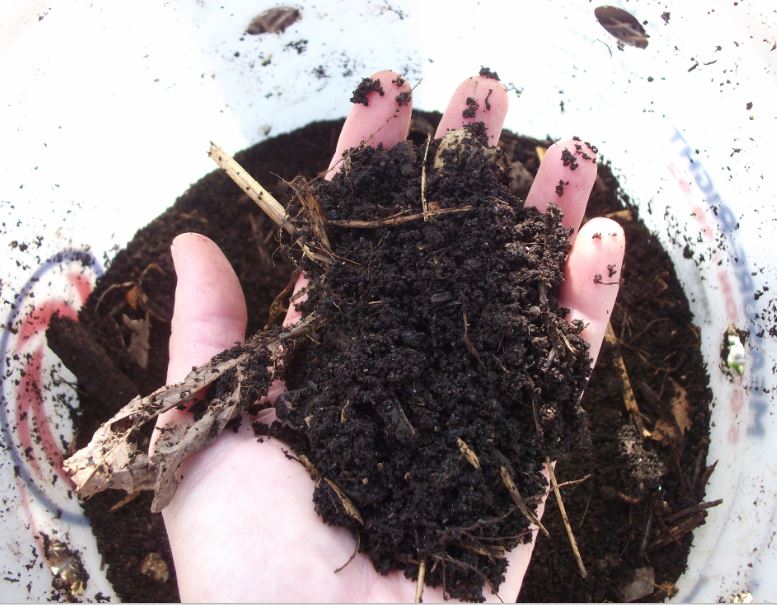
Hopefully, all the good info above has made you eager to be all-in on an
Here’s a do’s and don’t guide for growing an organic vegetable garden.
1. Apply Compost
Organic gardens require the addition of 4 inches compost per year, for the first few years, to increase your organic matter content. Once you reach a critical mass of organic matter, then you can cut back to about 2 inches of compost per year.
You’ll know when your soil has reached a critical mass because you’ll be able to dig with a shovel with little difficulty. Your soil will feel moist just under the surface even with no rain.
Your pest problems will start to be few and far between. Your vegetables will taste sweeter than anything you ever had before.
Most of the weeds that volunteer in your organic vegetable garden will be edible. Creeping grasses won’t thrive in your organic-rich garden, so they’ll be piddly and easy to pull if they show up at all.
2. Use Organic Fertilizers
Organic fertilizers are made from plant or animal by-products such as feather meal, bone meal, kelp meal, soybean meal, composted animal manure, and more.
Organic fertilizers usually aren’t mined from the earth. They seldom contain N-P-K rates that are over 15% per pound and are usually a lot lower than that (e.g., chicken manure 3-2-3).
Most of the nutrition in those amendments are slow release and not immediately water-soluble. That’s because they feed the soil, not the plants. That means the soil inhabitants need to digest them to make those nutrients available to plants.
Also, because of all the compost you add to your soil, you can usually get away with about 50-60% or less fertilizer in an organic garden. For example, the organic equivalent of a 10-10-10 is more like a 4-4-4.
That’s why you’ll never find a 10-10-10 if you are looking for OMRI or organic compatible fertilizers at the store.
3. Maintain Moist Soil
Until you reach that critical mass of organic matter in your garden, it is incredibly important to keep your soil moist. All those life forms I mentioned – bacteria, fungi, etc. – are water-dependent. They thrive in moisture and go dormant in dryness.
Since you are trying to increase the number of them using compost and organic fertilizers, you also need to make sure your soil feels about like a just wrung out sponge most of the time. If it gets any drier than that, it’s time to water your soil.
4. Mulch
Since nobody likes to water often, using mulch to cover your soil and preserve moisture longer is also pretty much a requirement of organic gardening. Mulch like straw, chopped leaves, a light layer of chemical-free grass clippings, newspaper, cardboard, etc. are excellent for protecting the soil.
Plus, they also break down into compost that is then used by your soil life as a food source. Don’t overload your soil though. A light layer of 1-2 inches is good to start. If you need more, add it later.
All that soil life must breath too. Too much mulch on top of all that compost you already added can be a bit stifling to your soil dwellers.
5. Manual Pest Control
No one likes to pick pests at first. We’re programmed to think it’s yucky. So we want to reach for a spray. But seriously, when you read the warnings on those pesticide products, that ought to scare you right into hand-picking your pest.
All you need is a bowl with soapy water. Or, if you have chickens, all you need is a bowl of water.
You can knock the pests into your bowl. The soapy water will kill them. The clean water will immobilize them long enough to get them to your chickens so they can pick them out and eat them alive.
Word of Caution: Make sure you identify the insect pest before you feed them to your chickens. Some insects secrete natural toxins that can poison your flock (e.g., blister beetles).
Also, some beneficial insects eat pests. So, you might want to let them stick around. Things like the praying mantis, assassin beetle, and lady beetle are nature’s insect pest controllers.
6. Use Cover Crops
Whenever you are not growing vegetables in your garden, you should try to grow cover crops. My favorites are mustard and tillage radish for cold weather, buckwheat for warm weather, and winter wheat or rye or crimson clover for fall planting to over-winter.
Mow these down to ground level with a scythe or weed trimmer before they flower. Leave the roots to die in the ground and pile their leaf matter on top of the bed as a mulch to smother the roots. You can add compost right on top of this.
7. Practice Crop Rotation
Crop rotation can be tricky in a small garden. I don’t find it useful for insect control because pests fly the few feet over to your new location. But, it is good for pathogen reduction.
Things like tomatoes and potatoes are highly susceptible to fungal pathogens. By only planting them in the same location once every five
What I love crop rotation for, though, is soil aeration and nutrient scavenging. Different plants have different root structures. Tap-rooted plants dig deep and bring up lower down nutrients. Shallow-rooted plants feed in the top few inches of soil.
By changing up plants based on rooting habits, your plants can access more nutrients in the same soil without depleting it. Those varying root types also aerate the soil so water and air can get in through by multiple root pathways and expand the reach of your biological life forms.
The Don’ts of Organic Gardening
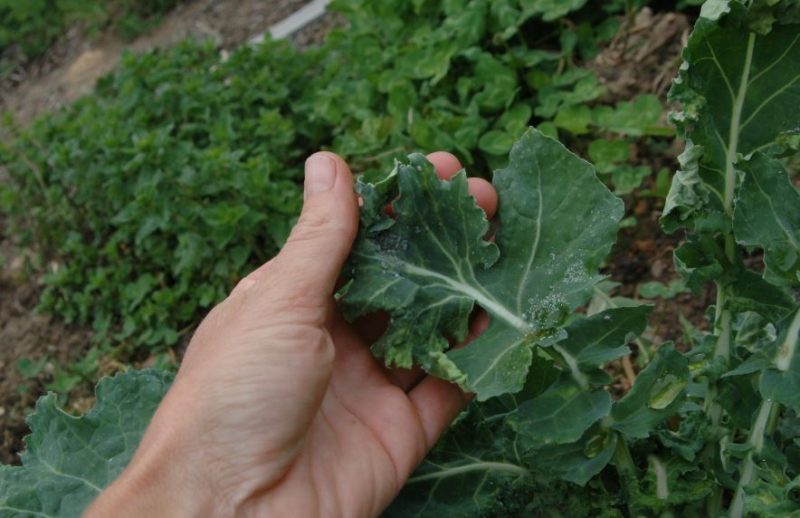
Now that you know what to do, here are some things to avoid so you don’t derail your efforts.
1. Don’t Use Strong or Fast Acting Fertilizers
I generally avoid salt-based fertilizers (e.g., anything with ammonium in the title). These tend to acidify the soil and can be detrimental to the production of soil life forms.
I avoid using most things with a water-soluble nutrient quantity higher than 30-40%. Fertilizers with 50-70% (or more) water-soluble nutrients can wash out with rain and run off to areas where I don’t need them. Plus, they cause plants to grow too fast for good health, and that makes them more likely to have pest and disease problems.
If I do occasionally need a fast-acting fertilizer to address a deficiency in a plant (e.g., purple leaf tips equals phosphorous deficiency), I’ll use an organic liquid fertilizer applied to the leaves for emergencies – compost teas designed to treat the specific deficiency work best for me.
2. Don’t Compost Diseased Plants
Since most of us organic gardeners make some or all of our own compost, it’s important that you avoid composting any diseased plant matter. Fungal pathogens, in particular, are persistent and can be transmitted by the compost.
When in doubt, leave it out of your compost pile!
3. Don’t Apply Chemical Loaded Water
If your water supply is full of chlorine or other stinky chemicals, it’s not a good idea to apply that to your garden. Those chemicals are specifically designed to kill bacteria and other micro lifeforms.
Either collect rainwater. Or, allow chemically treated water to air out for a few days before you use it in your garden.
4. Don’t Apply Too Much of Anything
Even fertilizers labeled for organic use can be damaging to an organic vegetable garden in high quantities. Apply fertilizers every 4-6 weeks rather than all at once when you need to use them. Use low dose fertilizers like compost tea or worm castings for interim applications.
5. Don’t Use Herbicides
Nobody loves to weed. But in an organic vegetable garden it’s a must.
Weeds are plants with an uncanny ability to survive inhospitable conditions. It takes a lot to kill them. So, anything you can apply strong enough to kill weeds will have an impact on your soil life.
Even “organic” things like horticultural vinegar can burn your skin and blind you. So, what do you think they are doing to all those micro heroes hard at work in your soil?
I know I won’t be popular for saying this, but there is no such thing as a safe herbicide for an organic vegetable garden. Hand weeding or covering with cardboard and compost are my go-to methods for handling weed problems.
6. Don’t Use Pesticides
I know I won’t be popular for saying this either. But even organic approved pesticides should be outlawed in a truly organic garden.
In the time it takes you to fetch your neem, you can squish those insect offenders with your gloved garden hand. Be brave!
7. Don’t Use Fungicides
Now, in an organic orchard, there are real reasons to use fungicides. But, in an organic vegetable garden, they are almost always unnecessary.
If you have fungal pathogens, use biofumigant cover crops like mustard often. Add neem meal and cornmeal to your soil as fertilizer. Keep adding compost.
Plant fungal pathogen resistant hybrid seeds for a few years until the problem is minimized. If possible, don’t use the worst infected area for susceptible plants for 7-10 years.
Conclusion
An organic vegetable garden is very distinct from

